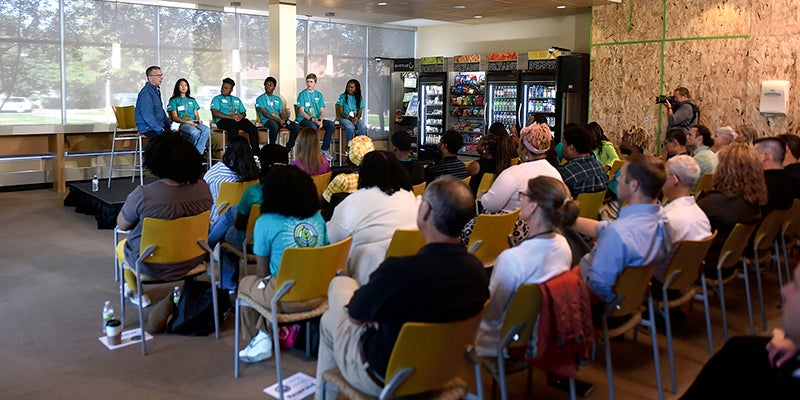Hormel shareholders meeting; Income and company practices among shareholder concerns
Published 11:03 am Wednesday, January 28, 2015
Though Hormel Foods Corp. highlighted a successful 2014 at Tuesday’s shareholders meeting, several shareholders in attendance hoped to put more attention on the company’s policies toward gestation crates, antibiotics and income inequality.
Shareholders defeated a measure put forth by the Humane Society of the United States to ask Hormel to disclose any financial risk it may have working with hog providers who use gestation crates for breeding pigs.
Paul Shapiro, president of the humane society, acknowledged Hormel’s work to rid its company farms of the crates, which confine pigs into a tight space and make it unable for them to turn around. The practice has been labeled inhumane by many food experts and several major companies have pledged not to buy goods from farms that use the crates.
Though Hormel no longer uses gestation crates, Shapiro and the Humane Society of the U.S. hoped Hormel would follow suit and refuse to buy meat from companies who continued to use them.
Hormel President and CEO Jeff Ettinger said the company takes animal welfare seriously and has urged its business partners to no longer use gestation crates. However, company officials didn’t feel there was a large financial risk over the issue and urged shareholders to defeat the measure.
Several members of the Unitarian Universalist Congregation at Shelter Rock, out of Manhasset, New York, urged Hormel to release more data on the amount of antibiotics used in its food production operations. Ettinger said the company follows United States Department of Agriculture guidelines concerning antibiotics. In addition, Ettinger told shareholders the data likely wouldn’t be of any use as there’s no accepted industry standard concerning antibiotics used in food production.
Former Hormel plant worker Rod Huinker once again spoke at the shareholders meeting to ask Hormel to pay workers more and bring Quality Pork Processors Inc. under the Hormel umbrella once again.
Huinker spoke for the 28th consecutive time. Though he praised Hormel for its growth and charitable practices once again, he also asked Hormel to be more concerned about income inequality.
“In 1981, I made $31,000,” he said. “In 1982, I made $32,000. A lot of the people who work in that plant make less than that today.”
Huinker also repeated his request to give the $1,128 a year taken out of his pension, because he was fired during the 1985 strike, to various charities.
Ettinger thanked Huinker once more for attending the meeting but stood by the company’s position to not address Huinker’s situation. The company has previously said addressing Huinker’s claim could set a precedent for others with complaints over the last 25 years.





